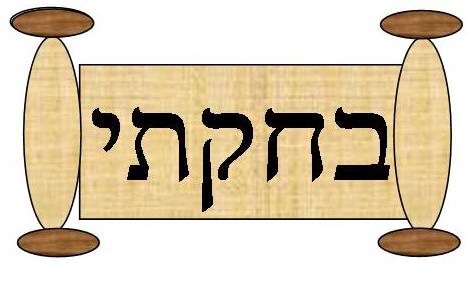The theme of Parshat Bechukotai is the “Tochacha” – a series of devastating predictions of what will befall the Jewish people throughout history – exile, anti-Semitism, persecution, and more.
Yet we know how much the Almighty cares for us, and He never “punishes” without “sandwiching” it with love. So it is not surprising that the “dire predictions” in this parsha also contain hidden blessings.
Rabbi Shraga Simmons explains: ‘…For example, Leviticus 26:33, God declares that “I will scatter you among the nations.” This is a hidden blessing, because if the Jewish camp is geographically divided, then when one community is persecuted, the other can carry on. Also, Leviticus 26:22 says that when the Jews are in exile, the “Land [of Israel] will be desolate.” This is a hidden blessing, because throughout the millennia – as numerous empires conquered the Land, and countless wars were fought for its possession – astonishingly, no conqueror ever succeeded in permanently settling Israel or causing the desert to bloom. This, of course, made it easier for the Jewish people to return in the 20th century and resettle their homeland – a hidden blessing. God cares for us so deeply, giving us the confidence that in life, every cloud has a silver lining.’
If you will keep my mitzvahs … the land will yield its produce … and I will give you rain” (Lev. 26:3). It’s interesting that the Torah promises an abundance of material and physical blessings in exchange for following the Torah. Most of us would probably expect a promise of spiritual return such as the promise of Heaven, paradise, or eternal life.
Rabbi Ron Jawary offers some insight into this verse: ‘Interestingly, the Torah never makes an explicit mention of life beyond this world. Perhaps what the Torah is teaching us is that we shouldn’t think the world and all the blessings in it have nothing to do with a spiritual life. The idea behind this could be that the physical, material blessings are truly spiritual blessings in that they provide us with an opportunity to connect to the Divine.
The more we understand this, the greater is our opportunity to become a conduit for God’s blessings. In fact, the Talmud expands on this and points out that we all have certain skills and talents, and should strive to share those talents with those around us. In doing so, we’re taking the physical blessings we’ve been given and transforming them into an eternal spiritual connection with God.’
Prepared by Devorah Abenhaim







